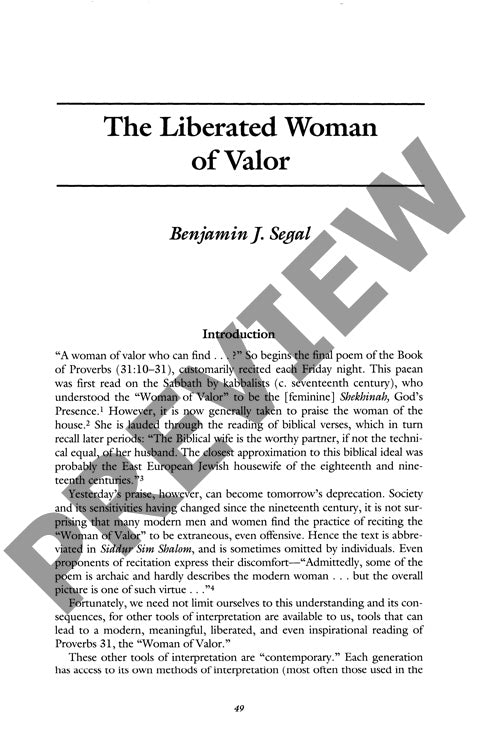The Liberated Woman of Valor
Couldn't load pickup availability
One of Judaism's most beloved liturgical poems - the "Woman of Valor" passage from Proverbs 31 - emerges under fresh analysis as a remarkably progressive text celebrating female autonomy and capability. Far from depicting feminine subordination, the acrostic poem's careful literary construction and precise Hebrew terminology reveal a portrait of independent feminine strength, particularly through the martial overtones of *hayil* (valor/strength). Close textual examination of language, structure, and context demonstrates how the passage positions its protagonist as a decisive economic actor engaging in trade and property acquisition, while simultaneously establishing her as the exemplar of religious devotion through "Fear of the Lord." The poem's intricate inclusio framework and deliberate word choices grant the woman equal status with her husband, culminating in her own public recognition "in the gates." Through methodical analysis comparing the text with other biblical and classical sources, this research shows how this ancient poem anticipates modern feminist principles and challenges both traditional and contemporary misreadings that frame it as archaic or patriarchal. When interpreted through appropriate hermeneutical approaches, this weekly Sabbath recitation offers meaningful resonance with current understanding of women's liberation and inherent worth.

More Information
-
Physical Description
-
Publication Information
Published 2000
ISBN
-
Publication Credits
Benjamin Segal

